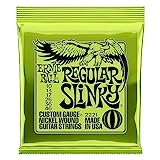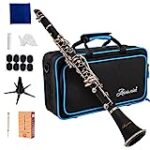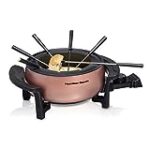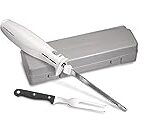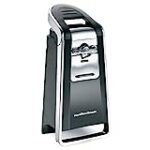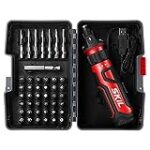🌅 Introduction
Welcome to our comprehensive guide on electric guitar strings that offer the best value for your money. Whether you are a seasoned guitarist or just starting your musical journey, finding the right strings can make a world of difference in your playing experience. In this guide, we will explore different brands, materials, and gauges to help you make an informed decision and achieve the perfect balance between quality and affordability. So, join us as we unravel the secrets behind these essential components that shape your electric guitar’s sound and unleash your true potential.
🏆 Our Top 5
- Ernie Ball Slinkys are played by legends around the world including Slash, Jimmy Page, Metallica, Eric Clapton, and more
- Preferred by players across many genres, Regular Slinky’s 10-to-46 gauge has become the industry standard
- Element Shield Packaging prolongs string life and keeps strings as fresh as the day they were made
- Bright, balanced tone
- Made in California, USA with the finest and freshest materials
- Our #1 selling guitar strings, Super 250s are included on all Fender electric guitars when leaving the factory
- Nickel-plated steel combines the high output and dynamic sound of steel with the smooth feel of nickel
- Hex core construction creates more brightness along with a faster pick attack
- Ball-end design with classic Fender colors help make string changes a breeze
- Made in the U.S.A.
- BESTSELLING SET – XL Nickel are our best-selling electric guitar strings, revered by players since 1974.
- VERSATILE, BRIGHT TONE – Nickel-plated steel wrap wire provides a bright, versatile electric guitar tone, great for a variety of musical genres.
- FOR THE ULTIMATE PERFORMANCE – Like all D’Addario electric guitar strings, XL Nickel are made with our proprietary Hex-Core, ensuring perfect intonation, consistent feel, and reliable durability.
- EARN REWARD POINTS - XL Nickel sets have a code on the recyclable VCI bag, which you can register to earn Players Circle points.
- MADE IN THE USA – XL Nickel electric guitar strings are made in the USA—drawn to our exacting specifications at our New York production facility.
- 3 packs of Super Slinky electric guitar strings.
- One of the original Slinky gauges, Super Slinky has remained one of the most popular electric guitar strings for decades.
- Bright, balanced tone.
- Made in California, USA with the finest and freshest materials.
- Ernie Ball Super Slinky electric guitar strings are one of the original Slinky gauges and are played by Jimmy Page, Iron Maiden, Angus Young, and legions of guitarists around the globe. These electric guitar strings are precision manufactured to the highest standards and most exacting specifications to ensure consistency, optimum performance, and long life. Super Slinky wound strings are made from nickel-plated steel wire wrapped around a hex-shaped steel core wire. The plain strings are made of specially tempered tin-plated high-carbon steel, resulting in a bright and well-balanced tone for your guitar. Super Slinky gauges are .009 .011 .016 .024 .032 .042. 3 individual sets.
🤔 How to choose?
Electric Guitar Strings Buying Guide
1. Types of Electric Guitar Strings
When it comes to choosing electric guitar strings, it’s important to understand the different types available. The most common types are nickel-wound, stainless steel, and coated strings. Nickel-wound strings are the most popular choice among guitarists due to their warm tone and balanced sound. Stainless steel strings, on the other hand, offer a brighter and more aggressive tone. Coated strings, such as those with a polymer coating, last longer and resist corrosion. It’s important to consider your playing style and preferred tone when selecting the type of electric guitar strings to use.
2. Gauge Considerations
Gauge refers to the thickness of the strings and has a significant impact on playability and tone. Lighter gauge strings, such as 9-42, are easier to bend and fret, making them ideal for beginners and players who prefer a more comfortable playing experience. Heavier gauge strings, such as 11-48, produce a thicker tone and offer more sustain, making them popular among rock and metal guitarists. It’s important to strike a balance between ease of playing and achieving the desired tone when selecting the gauge of electric guitar strings.
3. Playing Style and Genre
Your playing style and musical genre should play a crucial role in choosing the right electric guitar strings. For example, if you are a blues guitarist looking for a warm and smooth tone, nickel-wound strings might be the best choice. However, if you are a metal shredder aiming for a bright and aggressive tone, stainless steel strings could be more suitable. It’s important to experiment with different string types and gauges to find what works best for your playing style and genre.
4. Durability and Longevity
Durability and longevity are important factors to consider when buying electric guitar strings, especially if you play regularly. Coated strings with a polymer coating provide added protection against corrosion and can last up to three times longer than uncoated strings. While coated strings may be more expensive, they can save you money in the long run by requiring less frequent string changes. Take into account how often you play and the conditions in which you play to determine the level of durability you require from your electric guitar strings.
5. Budget Considerations
While it’s tempting to go for the most expensive electric guitar strings, it’s important to consider your budget. Keep in mind that the most expensive strings may not necessarily be the best fit for your playing style or genre. Look for quality brands that offer a range of options within your budget. Remember that cheaper strings can still provide excellent sound and durability, especially for beginner and intermediate guitarists.
In conclusion, choosing the right electric guitar strings involves considering the type of strings, gauge, playing style, durability, and budget. Experimenting with different options will help you find the perfect combination for your instrument and musical preferences. String selection is a personal choice, and what works for one guitarist may not work for another. Therefore, don’t be afraid to try out different strings and find the ones that suit your unique playing style and preferences.
💡 What to Look for in a electric guitar strings?
1. Gauge: Finding the Right Thickness
The gauge of an electric guitar string refers to its thickness. This is an important factor to consider when choosing guitar strings as it can greatly influence the sound and playability of your instrument.
The gauge of a string is typically measured in thousandths of an inch, with lighter strings having a lower gauge number and thicker strings having a higher gauge number. Lighter gauge strings are generally easier to play and bend, making them popular among beginners and players who prefer a more flexible feel. On the other hand, heavier gauge strings offer a fuller tone and better sustain, making them a popular choice for players who prioritize a rich and powerful sound.
When selecting a gauge, it’s important to consider your playing style and musical preferences. If you’re into playing fast and aggressive styles, lighter gauge strings might be the way to go. On the other hand, if you’re more into playing blues or rock and want that extra thickness for a punchy tone, heavier gauge strings would be a better fit.
2. Material: Finding the Right Balance
The material of the electric guitar strings also plays a crucial role in determining the tone and longevity of your strings. The most common materials used for electric guitar strings are nickel-plated steel, stainless steel, and pure nickel.
Nickel-plated steel strings are the most popular choice among electric guitarists due to their balanced tone, durability, and affordability. These strings offer a bright tone with a smooth feel, making them suitable for a wide range of musical styles.
Stainless steel strings, on the other hand, provide a brighter and more aggressive tone with increased sustain. These strings are ideal for players who want a powerful and edgy sound, particularly in genres like heavy metal or hard rock.
Pure nickel strings offer a warmer and vintage-inspired tone, reminiscent of the classic rock and blues eras. These strings have a softer feel and can be a great choice if you’re seeking a more mellow and smooth sound.
3. Coating: Extending String Life
Coated electric guitar strings have a protective coating that helps to extend their lifespan by preventing dirt, sweat, and oils from corroding the strings. While coated strings generally last longer, they can also impact the tone and playability of your guitar.
Some players prefer the natural feel and tone of uncoated strings, while others value the added longevity that coated strings provide. Ultimately, it boils down to personal preference. If you tend to have acidic sweat or frequently play in humid environments, coated strings may be worth considering to maintain the longevity of your strings and save some money on replacements.
In conclusion, when shopping for electric guitar strings, carefully consider the gauge, material, and coating that best suit your playing style and musical preferences. Experimenting with different string options can help you find the perfect combination to enhance your tone and improve your playing experience.
🔍 How we picked?
1. String Material: Finding the Perfect Tone
When it comes to electric guitar strings, the material they are made of plays a crucial role in determining the sound and tone. There are several options available, each with its own unique characteristics.
One of the most popular materials is nickel-plated steel. This type of string offers a bright and crisp sound while also providing a smooth playing experience. It strikes a balance between warmth and brightness, making it versatile for various music genres. For example, the iconic **Jimi Hendrix** preferred **nickel-plated steel** strings for their ability to deliver a vibrant tone and sustain.
On the other hand, some guitarists prefer a more edgy and aggressive sound, for which stainless steel strings are an excellent choice. They offer enhanced durability and a bright, cutting tone that is ideal for rock and metal genres. **Artists like Slash** have been known to favor the biting sound of stainless steel strings, bringing their solos to life with every bend and riff.
For those seeking a warmer and smoother sound, pure nickel strings are an excellent option. These strings produce a vintage tone reminiscent of classic blues and rock ‘n’ roll. They offer a mellow and warm sound, perfect for **Eric Clapton** aficionados looking to recreate his iconic “woman tone.”
2. Gauge: Striking a Balance Between Playability and Tonal Depth
Another crucial factor to consider when picking electric guitar strings is the gauge or thickness. The gauge can significantly impact the playability, tone, and overall feel of the instrument.
Lighter gauge strings, such as 9-42, are easier to bend and fret, making them an excellent choice for beginners or guitarists who prefer a fast and light touch. They produce a bright and articulate sound, making them suitable for genres like pop and country. **John Mayer** is known for his preference for lighter gauge strings, as they enable him to execute his intricate fingerstyle playing effortlessly.
However, if you’re after a fuller and more powerful tone with more sustain, medium or heavier gauge strings may be your best bet. These strings provide a rich bass response, making them ideal for genres like blues and classic rock. **Stevie Ray Vaughan** famously used heavy gauge strings (13-58) to achieve his signature Texas blues sound, bending those thick strings to the max.
It’s worth noting that string gauge is also influenced by individual playing style and finger strength. So, don’t be afraid to experiment and find the gauge that feels most comfortable and satisfying for your playing style.
3. Coating: Extending the Lifespan of Your Strings
One aspect that often goes unnoticed but should not be overlooked is the coating applied to electric guitar strings. Coatings can greatly impact the lifespan of the strings, as they protect against dirt, sweat, and oil, all of which can contribute to corrosion and tone deterioration.
Polymer coatings, such as those found in Elixir Nanoweb and D’Addario EXP strings, provide a smooth playing experience while extending the string’s lifespan. These coated strings are ideal for those who sweat a lot or have acidic hand perspiration, as they resist corrosion and maintain their fresh tone for an extended period. **Keith Urban** is a big fan of coated strings, as they allow him to perform night after night without the need for frequent string changes.
While coated strings do come at a slightly higher price point, the investment pays off in the long run, as they require fewer string changes and offer a consistently bright and lively tone. So, if you’re tired of constantly changing your strings or want strings that last through intense gigs and recording sessions, coated strings are a worthwhile option.
💬 Frequently asked questions about electric guitar strings
1. What types of electric guitar strings are there?
When it comes to electric guitar strings, there are a few different options to choose from. Here are some of the most common types:
– Nickel-wound strings: These are the standard choice for most electric guitar players. They have a bright and balanced tone, and they’re great for a wide range of musical styles.
– Stainless steel strings: If you’re looking for a brighter and more aggressive tone, stainless steel strings might be the way to go. They have a higher output and are perfect for rock and metal genres.
– Flatwound strings: These strings have a smooth, flattened surface, which gives them a warmer and mellower sound. They’re favored by jazz and blues players for their vintage vibe.
– Coated strings: Coated strings are designed to last longer by adding a protective layer to the strings. They can help to reduce finger squeak and extend the life of your strings.
2. What gauge should I choose for my electric guitar strings?
The gauge of your electric guitar strings refers to their thickness. There isn’t a one-size-fits-all answer to this question, as it largely depends on your personal preference and playing style. Lighter gauges, such as 9-42 or 10-46, are easier to bend and fret, making them ideal for beginners or players who prefer a lighter touch. On the other hand, heavier gauges like 11-49 or 12-52 offer more volume and sustain, but can be more challenging to play.
It’s important to note that the gauge of your strings can also affect the tension on your guitar’s neck. Changing to a different gauge may require adjustments to the truss rod or saddle height to maintain optimal playability. If you’re unsure, it’s always a good idea to consult with a professional guitar technician for guidance.
3. How often should I change my electric guitar strings?
The frequency of string changes depends on how often you play and your personal preference. Generally, it’s a good idea to change your electric guitar strings every 2-3 months or sooner if they start to lose their brightness, sound dull, or feel rough to the touch. However, some players may prefer the sound and feel of older strings, and others who play more frequently may need to change strings more frequently. Ultimately, it’s up to you to decide when it’s time to make a change.
4. Can I use acoustic guitar strings on my electric guitar?
While it may be tempting to use acoustic guitar strings on your electric guitar in a pinch, it’s not recommended. Acoustic guitar strings are usually designed with a different construction and tension, which can affect the playability and tone of your electric guitar. Electric guitar strings are specifically engineered to work with the magnetic pickups and electronics of an electric guitar, and they provide the best performance and tone for these instruments.
5. How do I choose the right brand of electric guitar strings?
Choosing the right brand of electric guitar strings is a matter of personal preference and experimentation. There are many reputable brands out there, each with their own distinct characteristics. Some popular choices include D’Addario, Ernie Ball, Elixir, and DR Strings. It’s worth trying out different brands and gauges to find the ones that suit your playing style and tonal preferences the best. Remember, what works for one guitarist may not work for another, so don’t be afraid to try different brands and see which ones resonate with you.
Remember, finding the right electric guitar strings is a highly individual process. Don’t be afraid to experiment and try different options to find the perfect fit for your playing style and sound preferences. Ultimately, the best electric guitar strings are the ones that inspire you to pick up your guitar and play.
Last update on 2025-07-22 / Affiliate links / Images from Amazon Product Advertising API
